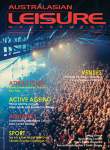New global guidelines outline importance of exercise for dialysis patients

New international guidelines have been released on the eve of Kidney Health Week (7th -13th March), showing how important it is for dialysis patients to incorporate physical activity into their daily lives and why involvement by exercise physiologists and physiotherapists in dialysis programs is imperative.
Led by renal expert UniSA Associate Professor Paul Bennett, the best practice guidelines developed by global clinicians, patients and researchers, outline activities that are safe for people receiving peritoneal dialysis to maintain and improve their quality of life.
The guidelines - a global first - give dialysis clinicians and patients clear advice about which exercises are safe or risky, how frequently they should be undertaken and what precautions are needed.
Assoc Prof Bennett advises “for too long, people on dialysis have been discouraged from exercising because of perceived barriers and uncertainty about the best exercise regime. But if we do not address this lack of physical activity, their independence and quality of life will suffer.”
Chronic kidney disease affects approximately 1.7 million Australians, but this number is expected to increase exponentially due to its links with type 2 diabetes, which accounts for 38% of all new cases, and high blood pressure.
Noting that other causes include immune diseases, congenital conditions, or genetic disorders, such as polycystic kidney disease, Associate Professor Bennett commented "few dialysis clinicians are exercise experts, which can be a barrier when recommending programs for their patients,.
“This is why involvement by exercise physiologists and physiotherapists in dialysis programs is imperative.”
Walking, cycling and core strengthening exercises such as swimming are recommended, as long as the catheter is covered and immobilised with tape to prevent it from getting wet, or from sweat seeping into the exit wound.
Any activities that cause abdominal strain, including sit-ups, should be avoided for several weeks after surgery, however core exercises under the supervision of an exercise professional may be beneficial for many patients.
Associate Professor Bennett adds “exercises which improve abdominal strength are especially valuable because weak core muscles may increase hernia risks and place extra strain on the lumbar spine, particularly when accompanied by up to two litres of fluid in the peritoneal space.”
“Exercise doesn’t have to be vigorous. Even elastic fitness bands for resistance work can be used for frail, intermediate and high functioning dialysis patients to use at home.
“We also encourage people to keep working where possible. In addition, sexual activity can be important for many patients."
Associate Professor Bennett says fitting physical activity into lifestyle routines, such as regular exercise for 20-30 minutes several times a week, is likely to improve a dialysis patient’s mental and physical health.
“Importantly, people receiving peritoneal dialysis can suffer from social isolation. Group exercise and activities can help if it is safe and evaluated on a case-by-case basis.”
To help explain the best exercise for kidney health, UniSA exercise physiologist Brett Tarca will give a free online session on Tuesday 8th March from 12pm-12.30pm.
Click here to register.
Kidney Health Week runs from 7th to 13th March. For more details go to kidney.org.au/get-involved/kidney-health-week
Related Articles
23rd November 2021 - New UniSA study explores potential of RaceRunning sport to help children with cerebral palsy
25th February 2022 - Griffith University assesses role of exercise in helping women with recurrent ovarian cancer
27th January 2022 - ESSA highlights caution required when returning to exercise post COVID infection
28th December 2021 - ESSA highlights benefits of daily low-intensity exercise to beat fatigue
14th December 2021 - Richard Beddie recognised for industry advocacy at New Zealand Exercise Industry Awards
1st December 2021 - Health and exercise sector organisations come together to form new Health and Exercise Professional Forum
18th November 2021 - ‘Exercise as medicine’ programs get backing from Exercise and Sports Science Australia
12th September 2021 - Decoding the mental health benefits of exercise
7th September 2021 - ESSA marks Women’s Health Week by encouraging women to exercise for the right reasons
2nd August 2021 - Les Mills MBX mat named ‘best exercise mat’
20th May 2021 - ESSA reminds Australians that exercise can change lives
7th April 2021 - ESSA marks World Health Day by highlighting that exercise is for everyone
8th March 2021 - ESSA celebrates female leaders in the exercise and sports science industry
2nd March 2021 - NZREPs share some of the latest research highlighting the benefits of exercise for children
16th February 2021 - NZREPS share research insights into top exercise trends for 2021
2nd February 2021 - ESSA celebrates 30th anniversary of supporting health through exercise






